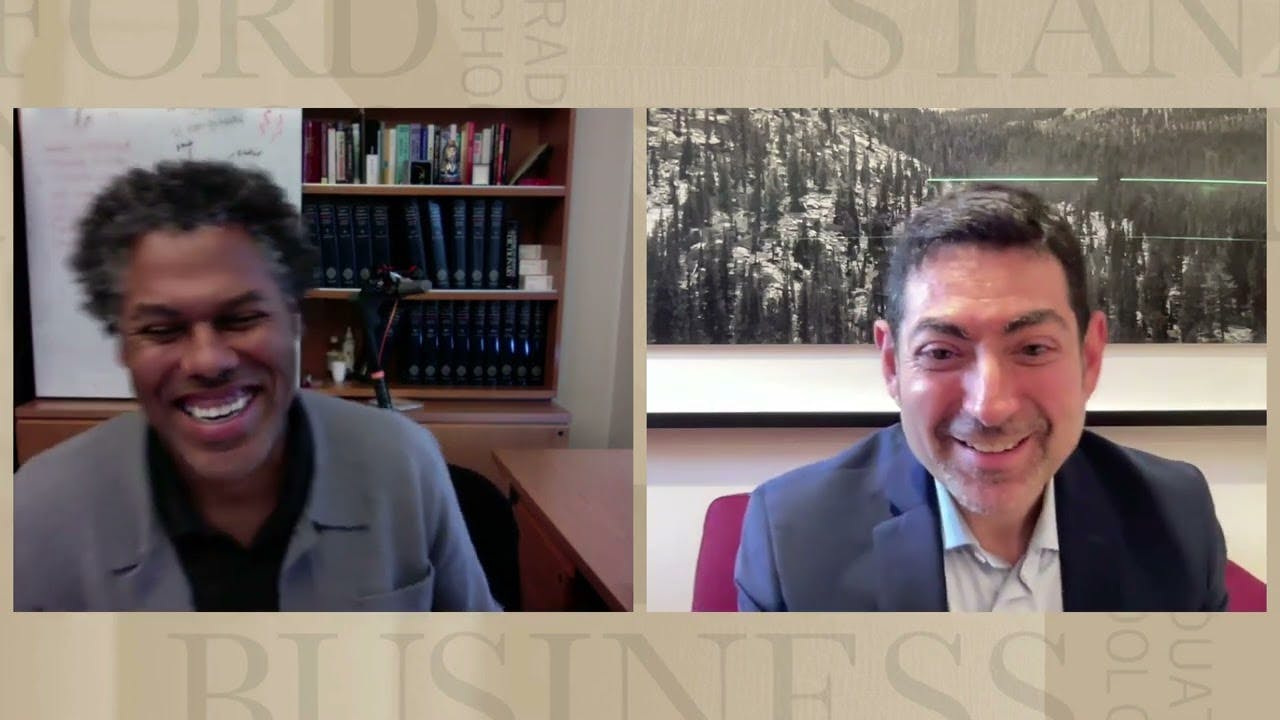Leadership for Society: Governing Tech: International Cooperation and Competition
()

Tino Cuéllar
- Mariano-Florentino Cuéllar, also known as Tino, is the president of the Carnegie Endowment for International Peace.
- Tino believes that AI has had a significant impact on international relations by polarizing opinions, facilitating targeted propaganda, and advancing drone technology.
- He warns that the development of AI could lead to increased competition and conflict between countries as they vie for control and influence over this powerful technology.
- Tino emphasizes the importance of finding common ground and building trust among different countries to mitigate the risks associated with AI and promote cooperation for the benefit of humanity.
Brian Christian
- Brian Christian expresses his optimism about the potential for international cooperation on regulating AI, citing examples of successful international cooperation in other areas such as civil aviation and nuclear weapons.
- Christian acknowledges the need to balance the potential negative effects of AI on society with the need to remain competitive with other countries in terms of technological development.
- He suggests that regulations aimed at improving technology can sometimes actually benefit competition, citing the example of fuel efficiency standards in cars.
- Christian also notes the importance of ethical considerations in AI development and the need to build institutional frameworks to prevent countries from gaining an advantage by experimenting with dangerous or unethical technologies.
- He acknowledges the potential for AI to widen social inequality but argues that technology has also historically reduced social inequality in some ways.
AI and Society
- There is a debate about whether technology inherently leads to less inequality or if it can exacerbate existing inequalities.
- The speaker argues that technology has both benefits and drawbacks and that it is important to find a balance between innovation and regulation to mitigate potential negative consequences.
- The speaker highlights the example of carbon emissions and climate change as a result of technological advancements and emphasizes the need for liability systems, regulations, and norms of use to address potential risks.
- The speaker acknowledges the positive impact of technology on various aspects of human well-being but stresses the importance of prudence and common sense in its regulation.
- The speaker suggests that countries should work together to address global challenges and emphasizes the need for international cooperation and information sharing.
- The speaker discusses the complexity of AI and the importance of considering human judgment and values when designing AI systems to ensure that they align with our goals and desires.
- The speaker concludes by emphasizing the need for self-awareness and understanding of our own values and motivations in order to have a positive relationship with technology.